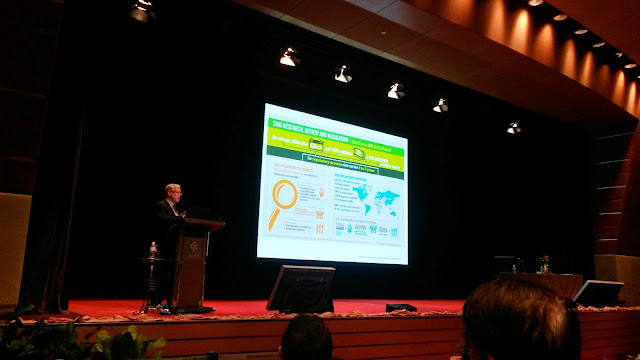It was very useful to attend the MPOC forum yesterday. Thank you MPOC.
Useful highlights include:
- Biodiesel call for B20 and view on this implementation by both Malaysia and Indonesia could rebase palm oil price to over RM3,000 per tonne. Assertions on financial viability of biodiesel on its own under Euro 5 standard without subsidy. But on the no subsidy viability point we have heard other views from analysts and others.
*Post conference info: Ambank in its 16 February note says "Reuters reported that Malaysian biodiesel producers are seeking new incentives after their Indonesian peers were given subsidies. A source said that Malaysian biodiesel producers are looking for tax incentives. The source added that it is unlikely that Malaysian producers would be receiving the type of subsidies given in Indonesia as Malaysia is moving away from that. Presently, the pricing formula of biodiesel in Malaysia is linked to CPO price." Thus, analysts note the CPO+ price basis has been advantageous to Malaysia biodiesel and added support is sought (which is a contrast to the statements in the paragraph above?)
- Labour permits for G2G Bangladesh worker recruitment proceeding (and to look into improvements in the process) but the Ministry observes some slowness in companies finding and bringing in workers once given the permit.
- Update on 3 new refinery licenses granted for 1.6 million tonnes of capacity.
- Info cited of a real quote on smallholder RSPO certification costing from a service provider. About RM400,000 per site per year; for a site comprising 50 smallholders of 50 hectares each. We did ask, but the name of service provider is not disclosed at this point. We know a handful are active in this sector. The conclusion is that the current premia indicate break-even for such a smallholder (assumes 100 percent of certificates sold under mass balance); which means no incentive to certify unless with the financial support of a large company. Bottom line: companies with processing assets can garner more from RSPO certification; the premia gains are out of reach of smallholders.
You can download the presentations from here: http://www.mpoc.org.my/Reach_and_Remind_Friends_of_the_Industry_Seminar_2015_and_Dialogue_-_Download_Presentation.aspx








